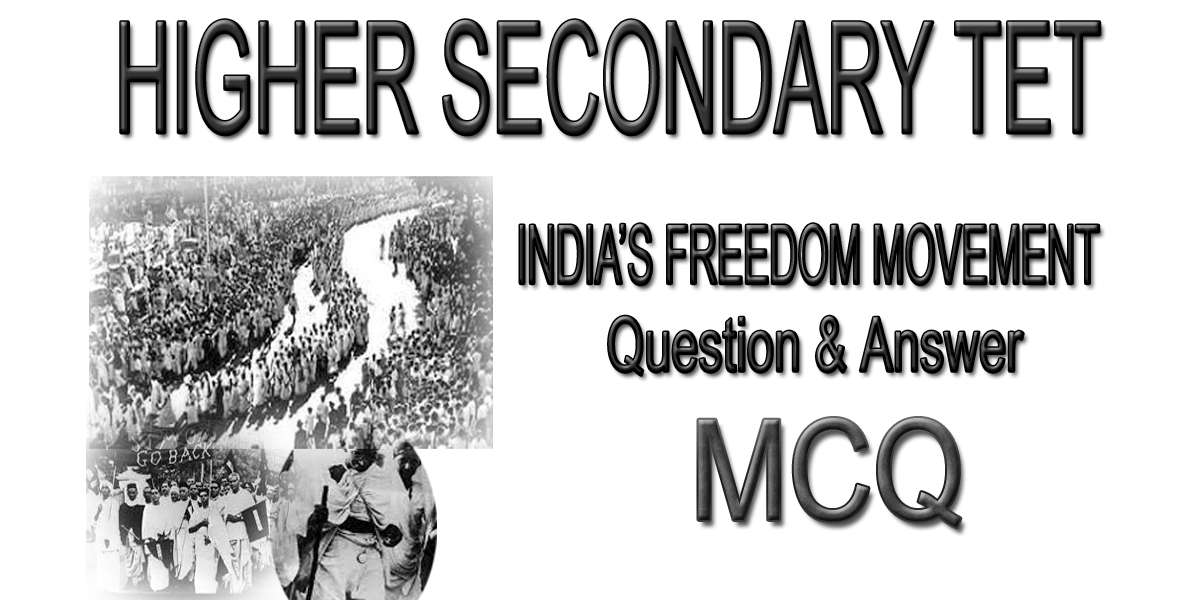Higher Secondary TET Political Science. The national movement and constitutional development culminated in the enactment of the Indian Independence Act 1947. This Act brought British rule to an end and established two dominions of India and Pakistan with right to secede from the British Commonwealth. The enactment of the Indian Independence in Act 1947 was an event of great constitutional importance in so far as it closed the chapter of British rule in India and ushered the dawn of free India.
Higher Secondary TET Political Science
Select the correct Answer
1. The Governor-General’s Legislative Council was enlarged and given purely legislative functions by the:
(a) Act of 1858
(b) Indian Councils Act 1861
(c) Indian Councils Act 1892
(d) none of the above
Ans: b
2. The Governor-General was given absolute veto in matters pertaining to legislation by:
(a) the Act of 1858
(b) Indian Councils Act 1892
(c) the Act of 1909
(d) the Indian Councils Act 1861
Ans: d
3. The law making powers which were taken away from the Presidencies of Bombay and Madras by the Act of 1833 were restored to them by:
(a) the Indian Councils Act 1861
(b) the Act of 1858
(c)the Indian Councils Act 1892
(d) the Act of 1909
Ans: a
4. The policy of legislative devolution was initiated by:
(a) the Act of 1858
(b) the Indian Councils Act 1861
(c) the Act of 1909
(d) the Act of 1919
Ans: b
5. The Ordinance Making power was for the first time granted to the Governor-General under:
(a) The Act of 1858
(b) the Indian Councils Act 1892
(c) the Act of 1909
(d) Indian Councils Act 1861
Ans: d
6. The ‘ foundations of the system of System administration in India which lasted till the end of the British rule in India were laid by:
(a) The Act of 1858
(b) Indian Councils Act 1861
(c) the Regulating Act of 1773
(d) the Indian Councils Act 1892
Ans: b
7. The non-official members were associated with the Legislative Councils for the first time by:
আপুনি যদি আমাৰ পেজ পঢ়ি ভাল পাইছে তেন্তে আমাৰ ‘নিউজলেটাৰ চাবস্ক্রাইব’ কৰক। নতুবা আমাৰ ‘ফেচবুক পৃষ্ঠা’ অনুসৰণ কৰক বা আমাৰ “ইউটিউব চেনেল চাবস্ক্রাইব’ কৰক ।
(a) the Indian Councils Act: 1861
(b) the Indian Councils Act 1892
(c) the Act of 1909
(d) the Act of 1858
Ans: a
8. The principle of election, though in a veiled form, was for the first time recognised by:
(a) the Act of 1861
(b) Indian Councils Act 1861
(c) Indian Councils Act 1892
(d) the Act of 1909
Ans: c
9.The members of the Legislative Council were for the first time given right to ask questions from the government and seek other information under the
(a) Act of 1858
(b) Indian Councils Act 1861
(c) Indian Councils Act 1892
(d) none of the above
Ans: c
10.Which one of the following Acts granted an opportunity to the members of Legislative Council to criticise the financial policy of the government?
(a) The Act 1858
(b)the Charter Act of 1892
(c) The Act of 1909
(d)T he Act of 1919
Ans: c
